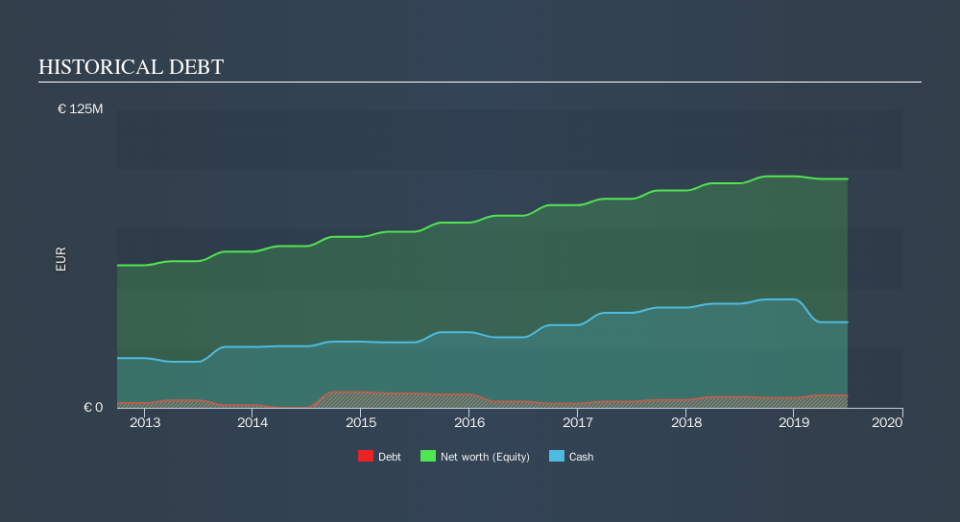Here's Why Installux (EPA:STAL) Can Manage Its Debt Responsibly

The external fund manager backed by Berkshire Hathaway's Charlie Munger, Li Lu, makes no bones about it when he says 'The biggest investment risk is not the volatility of prices, but whether you will suffer a permanent loss of capital.' So it might be obvious that you need to consider debt, when you think about how risky any given stock is, because too much debt can sink a company. We can see that Installux S.A. (EPA:STAL) does use debt in its business. But is this debt a concern to shareholders?
What Risk Does Debt Bring?
Debt is a tool to help businesses grow, but if a business is incapable of paying off its lenders, then it exists at their mercy. Ultimately, if the company can't fulfill its legal obligations to repay debt, shareholders could walk away with nothing. However, a more usual (but still expensive) situation is where a company must dilute shareholders at a cheap share price simply to get debt under control. Having said that, the most common situation is where a company manages its debt reasonably well - and to its own advantage. The first step when considering a company's debt levels is to consider its cash and debt together.
See our latest analysis for Installux
How Much Debt Does Installux Carry?
The image below, which you can click on for greater detail, shows that at June 2019 Installux had debt of €5.25m, up from €4.50m in one year. But on the other hand it also has €35.9m in cash, leading to a €30.6m net cash position.
How Strong Is Installux's Balance Sheet?
We can see from the most recent balance sheet that Installux had liabilities of €33.7m falling due within a year, and liabilities of €18.1m due beyond that. Offsetting these obligations, it had cash of €35.9m as well as receivables valued at €27.8m due within 12 months. So it can boast €11.9m more liquid assets than total liabilities.
This surplus suggests that Installux has a conservative balance sheet, and could probably eliminate its debt without much difficulty. Simply put, the fact that Installux has more cash than debt is arguably a good indication that it can manage its debt safely.
On the other hand, Installux saw its EBIT drop by 2.1% in the last twelve months. That sort of decline, if sustained, will obviously make debt harder to handle. There's no doubt that we learn most about debt from the balance sheet. But it is Installux's earnings that will influence how the balance sheet holds up in the future. So when considering debt, it's definitely worth looking at the earnings trend. Click here for an interactive snapshot.
Finally, a company can only pay off debt with cold hard cash, not accounting profits. Installux may have net cash on the balance sheet, but it is still interesting to look at how well the business converts its earnings before interest and tax (EBIT) to free cash flow, because that will influence both its need for, and its capacity to manage debt. In the last three years, Installux's free cash flow amounted to 44% of its EBIT, less than we'd expect. That's not great, when it comes to paying down debt.
Summing up
While we empathize with investors who find debt concerning, you should keep in mind that Installux has net cash of €31m, as well as more liquid assets than liabilities. So we are not troubled with Installux's debt use. Over time, share prices tend to follow earnings per share, so if you're interested in Installux, you may well want to click here to check an interactive graph of its earnings per share history.
If you're interested in investing in businesses that can grow profits without the burden of debt, then check out this free list of growing businesses that have net cash on the balance sheet.
We aim to bring you long-term focused research analysis driven by fundamental data. Note that our analysis may not factor in the latest price-sensitive company announcements or qualitative material.
If you spot an error that warrants correction, please contact the editor at editorial-team@simplywallst.com. This article by Simply Wall St is general in nature. It does not constitute a recommendation to buy or sell any stock, and does not take account of your objectives, or your financial situation. Simply Wall St has no position in the stocks mentioned. Thank you for reading.


